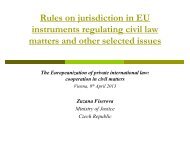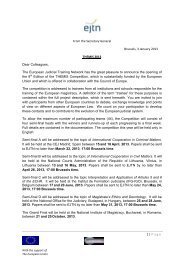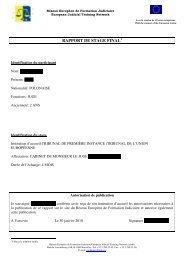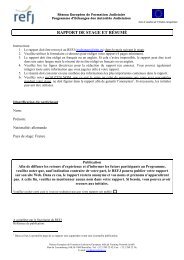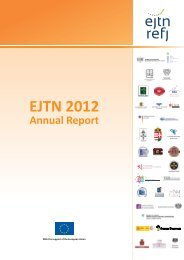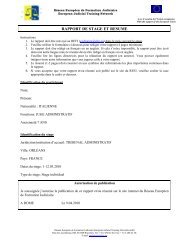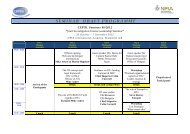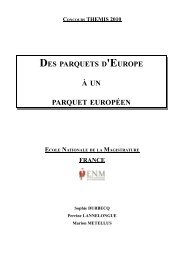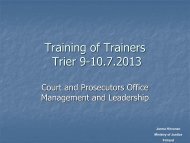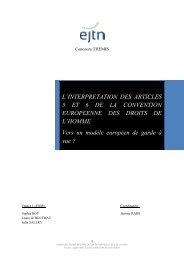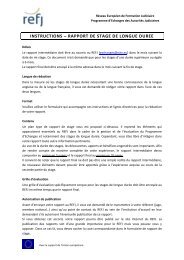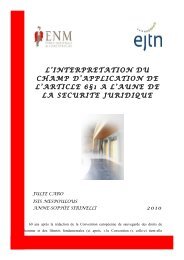European Criminal Justice - EJTN
European Criminal Justice - EJTN
European Criminal Justice - EJTN
- No tags were found...
You also want an ePaper? Increase the reach of your titles
YUMPU automatically turns print PDFs into web optimized ePapers that Google loves.
<strong>EJTN</strong> training guideline in <strong>European</strong> <strong>Criminal</strong> <strong>Justice</strong> - Update 2011B) EU expertsExamples of <strong>European</strong> experts are representatives of the EU organs suchas the <strong>European</strong> Court of <strong>Justice</strong>, the Court of First Instance, the Council,Commission, and <strong>European</strong> Parliament. Further trainers might berepresentatives of the appropriate EU-agencies such as Eurojust, the<strong>European</strong> Judicial Network, Europol, and Frontex. <strong>European</strong> expertsshould, in particular, be deployed for specialised seminars, workshops, andstudy visits.C) National practitionersNational experts can be defined as practitioners with a special knowledgeof EU criminal justice, its implementation in their home member state, andexperience of cross-border cooperation in this regard. Trainers might berepresentatives of the national ministries of justice and the interior,judges and prosecutors, administrators, representatives of the lawenforcement and border guards, and defence lawyers. With thisprofessional background and experience, national experts should inparticular be deployed for specialised seminars and workshops.D) ScholarsAcademic experts would be university professors and associate professors,researchers, PhD candidates and assistant professors. Scholars would berepresentative of both national universities as well as ‘EU universities’ suchas the College of Bruges, the <strong>European</strong> University Institute of Florence,etc. Academic experts should, in particular, be deployed for basic coursesand distance learning courses.E) Experts from training institutionsExperts from the national training institutions can be defined as judges,prosecutors, magistrates and trainers working in the national judicialschools who are therefore very familiar with the special requirements interms of contents, organisation, and pedagogy of judicial training. Expertsof training institutions should in particular be deployed for basic seminarsand distance learning courses.F) Experts from NGOsExperts from NGO can be defined as lawyers, researchers, PhD candidatesemployed national and <strong>European</strong> NGO’s. Examples of EU-NGOs active inthe field of <strong>European</strong> criminal justice are: Statewatch, Fair Trials Abroad,etc. Depending on the topic, experts from NGOs should, in particular bedeployed for specialised seminars.4. TraineesThe potential trainees for each sub-topic are defined and assigned respectively.Trainees can be divided into the following categories:A) Senior judges5



